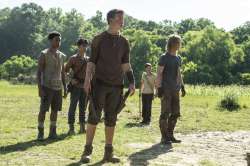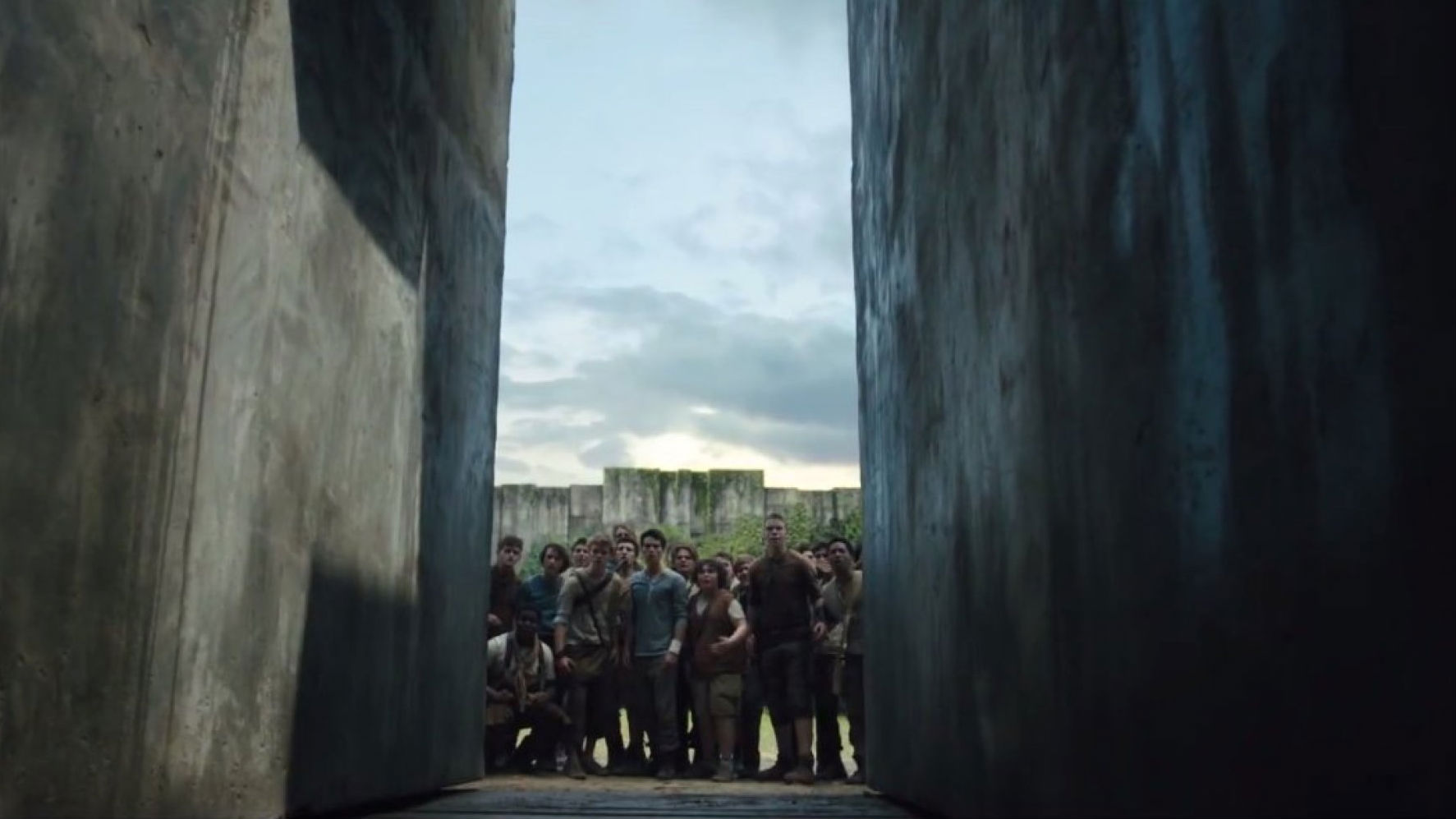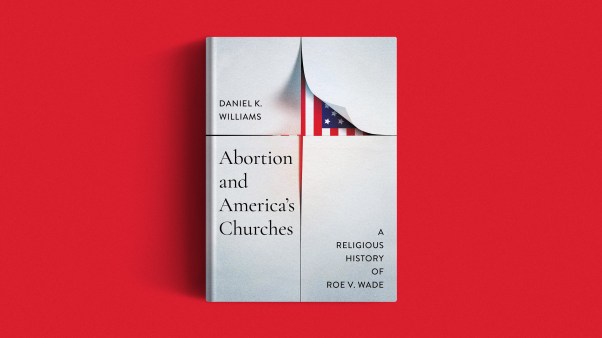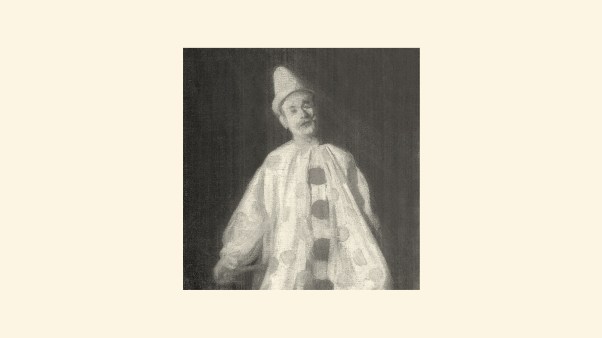As apocalypses go, it’s admittedly refreshing to hear about one that isn’t really our fault. The world has ended so many (grisly) ways lately that the sheer ingenuity of humanity’s many problems has to be appreciated.
Of course, while the apocalypse might not be people’s fault, in the post-apocalypse of The Maze Runner, lots of other things are.
 Twentieth Century Fox Film Corporation
Twentieth Century Fox Film CorporationBecause, other than the prime mover, most of the rest of the post-apocalyptic script in The Maze Runner is intact. Egoism? Check. The Maze Runner yields some of the best Lord of the Flies moments since, well, Lord of the Flies, with the admittedly touching alteration that Piggy—Chuck is his name, this go around—doesn’t get mob lynched (but, spoiler alert, it still doesn’t end especially well). Groupism? For sure. The “Gladers,” as they are known (because they live in a glade), prize nothing quite so highly as order.
Occasionally brutal order, because it’s the thin line that enables their common security, both from each other and from the denizens of the Maze. Power politics and anarchy? Check, and check.
Alby, the affable group leader and first to arrive in the Maze, recalls the early days of the Maze when a kind of state of nature persisted and it was only through the establishment of the hierarchy and rules of the Glade that something like peace and order were possible.
That, by the way, is not just a clean summary of the world of The Maze Runner. It’s also the Oxford Handbook of International Relation summary of Realism in international relations. Anytime an Oxford Handbook basically sets the ground rules for your young adult thriller, you know a few stock scripts have been copy and pasted.
Queue the most innovative part of this post-apocalyptic thriller: the setting. The boys inhabit a glade at the center of a maze, which shifts its pattern every night, and to which no answer has been found. Also, nobody can remember who they are, or how they got there.
Memory and forgetfulness is one of the more interesting themes haphazardly woven through this dystopian thriller. The maze, probably the most interesting character in the movie, has its own memory: a long one, that changes adaptively, “forgetting”—or appearing to—its shape and pattern every night, to reset the boy’s orientation and their chances of escape.
 Twentieth Century Fox Film Corporation
Twentieth Century Fox Film CorporationThe boys themselves have a perplexing kind of amnesia: only their names coming back to them, slowly, over time. You have to wonder: just what is left of a person, their personality, even their functionality, after their memory is scraped clean?
As it turns out, it’s not an especially big deal. One boy, Newt, even waxes a bit spiritual about the whole thing. It doesn’t matter what came before, he says; “what matters is who we are now.”
But that, as they say, is the privilege of youth. Because almost all of that matters. We don’t know what we’re supposed to be doing if we don’t know what story we’re part of. The final revelation of the mystery of the maze, and the ability to reclaim the memories that unravel it, ends up not only being important, but decisive. And the boys’ blessed naiveté—and it is a blessing according to some important plot twists—comes at a terrible cost.
It definitely matters what came before.
Probably the most forgotten thing in the movie is the character of Theresa. A more perfunctory imitation of stock teenage girl stereotypes it would be hard to imagine. Too bad, since the book character of Theresa is quick witted, sassy, and hugely important. Why is she important? Why does it matter that she’s a girl instead of a boy? Where does she come from?
These things do actually have answers, but you’ll need to binge through the young adult fiction pages of the original novel to get them. In the movie, you could take her, you could leave her, it wouldn’t make much dent in the overall story. The fact that she’s a girl is cause for the obligatory gendered giggles when, unlike the boys, she reacts to amnesia with a five alarm teenage-girl freak out (complete with rock throwing, running away, and pouting). But that’s about it. This girl is no Katniss.
 Twentieth Century Fox Film Corporation
Twentieth Century Fox Film CorporationTheresa is a special complaint, but sadly not an isolated one. None of the characters really have the depth of feeling and personality that the (already not amazingly well written) books manage. Almost every scene intended to pack the audience with authentic emotion beyond the barrage of non-stop action fails to transcend this problem, so that scenes obviously intended to elicit those feelings feel more awkward and unsettling.
The cinematography has a videogame-like feel, and while initially disappointed my IMAX wasn’t showing it in 3D, I became grateful for it pretty quickly. There are plot holes wide enough for characters to fall through, but the young (or young at heart) may not even notice them barraged with epic fight scenes with bulging cyber-spiders called “grievers.”
There are some clever twists, and a lot of very loud noises, but The Maze Runner is basically business as usual in the young adult post-apocalyptic world. Business as usual, mind you, is amazing: first place on opening weekend with an estimated $32.5 million, nearly as much as the next three films (A Walk Among the Tombstones $13.1, This is Where I Leave You $11.9, No Good Deed $10.2) combined.
Stocked up against The Hunger Games, even against Divergent, Maze Runner is an imitation of better stuff in the post-apocalyptic young adult genre. If this is the one your boys were waiting for, a Thomas for their Katniss or their Tris, I have no doubt they’ll enjoy the fast-paced explosions, but I expect we’re still waiting for a new, albeit very different, Thomas.
Caveat Spector
As Brick from Anchorman would say, “LOUD NOISES,” which accompany a good deal of hand-to-hand violence, an enormous amount of implied grisly off screen death, but very little actual on screen death, and the sort of foul language that boys who are, in fact, really good boys would use (along with some cutesy euphemisms for cuss words, like “shuck”).
Robert Joustra teaches international politics at Redeemer University College. He is an editorial fellow with The Review of Faith and International Affairs, a fellow with the D.C. think tank The Center for Public Justice, and tweets about life, the universe, and everything @rjoustra.












